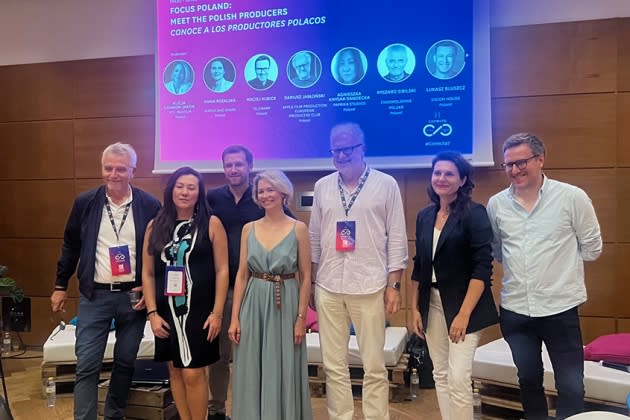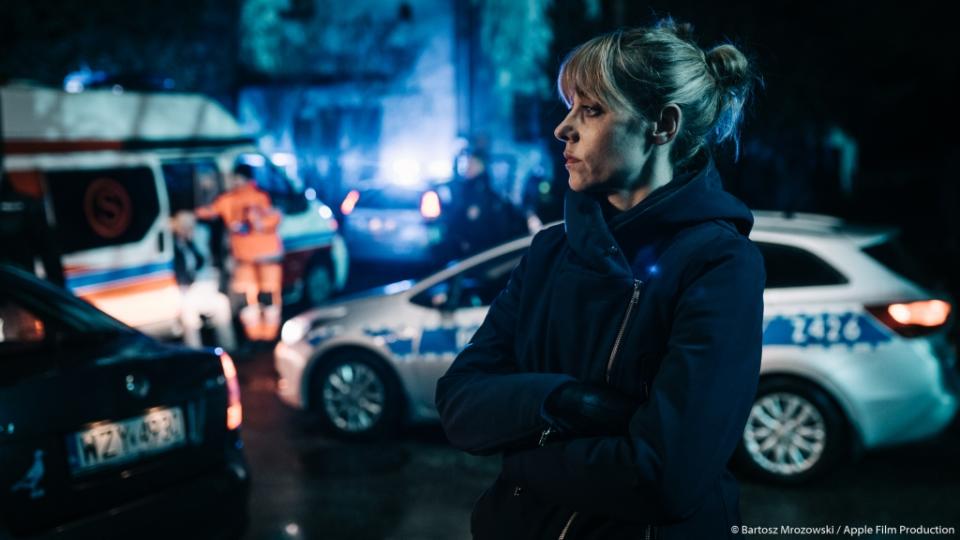Polish Producers Talk A Way Forward: IP Ownership, International Co-Production
- Oops!Something went wrong.Please try again later.

Poland, renown for its production value and one of Europe¡s biggest markets outside its Top 5, enjoyed some limelight at Conecta Fiction whee it received a country focus.
Six of its top independent producers – including Dariusz Jablonski at Apple Film, Anna Rózalska, co-founder and producer of Match and Spark), Telemark’s Maciej Kubicki, a producer-writer and Ryszard Sibilski, head of EndemolShine Polska, debated key issues, of which the hottest is IP ownership.
More from Variety
'Indiana Jones 5': It Took 100+ VFX Industrial Light and Magic Artists to De-Age Harrison Ford
Stage 32 Entertainment Industry Social Network Hits 1 Million Members
Producer-director Lukasz Bluszcz a co-owner of Vision House, and Agnieszka Knysak-Sandecka, head of production at Viaplay-owned Paprika Studios, also spoke at the panel whose expertise ranged from premium TV series like Telemark’s “The Pact” and the Polish adaptation of “In Treatment,” to factual shows, which is Vision House speciality.
Panel moderator Alicja Grawon-Jaksik, at Maxfilm explained that many of Poland’s 150-200 production companies produce both feature films and series. Most series are modestly priced, at around €300,000-€400,000 ($327,000-$436,000) for a 40-minute episode, rising to $545,000-$872,000) for premium series. Netflix dominates the streaming market, and invests significantly in Polish series, Grawon-Jaksik said.
Currently, Poland is facing an 18% inflation rate. Independent producers obsession, however, is IP.
When streaming platforms entered the market, there were hopes of shaking up the traditional market, Dariusz Jablonski observed.
“I think that the Polish market is a little bit traditional, a little bit remote. Streaming platforms coming to the same level all together can change that. My hope is that if platforms offer producers the chance to create premium series and give them the chance to earn money from success, everybody will win. IP in fact dominated discussions at the Conecta Fiction panel.
To retain IP, one solution is to introduce an international element to the production process, transforming an idea into a format. “There is a very clear border between local creativity and foreign creativity. When we come with a Polish idea to the Broadcasting Corporation it is not uncommon for us to be asked to leave the rights behind early on in the process,” said Sibilski. “However, retaining rights to our IP is very important to us in order to maximise avenues for exploitation.”
This is why Polish producers are eager to work on co-productions. However, this is not the only solution; producers want to see changes that allow them to earn money and invest in their production companies for further development. Lukasz Bluszcz emphasized that “Poland has become the second largest importer of formats behind Germany.”
He added, “It shows the strength of the market financially, but also the weakness of not developing a lot of domestic formats and risk aversion of the broadcasters. And we would really love to change that, maybe starting with the public broadcaster. But that’s a dream.”
Although Poland may lag behind in terms of IP ownership, key producers bring a wind of change. Some are already ahead of the game, like Dariusz Jablonski, who has follows his own path to independence by developing “series formatting service at my own cost and only then propose it to the broadcasters because then I have the feeling that I control what I’m offering and what I’m doing.”
One of the best examples is the crime drama series “The Pleasure Principal,” which was almost entirely developed at his own cost and structured as a co-production between Poland, Ukraine, and the Czech Republic. It was sold to European countries, generating revenue, with Jablonski part retaining ownership.

Best of Variety
Sign up for Variety’s Newsletter. For the latest news, follow us on Facebook, Twitter, and Instagram.

